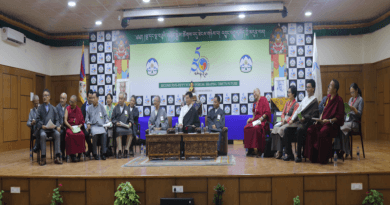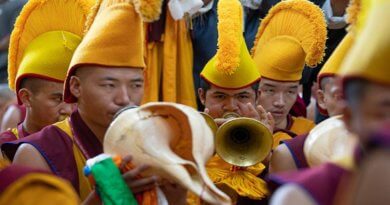Chinese authorities forcibly shut down Kharmar Monastery, evicts monks, nuns

DHARAMSALA, 5 Aug: As the Chinese communist regime’s crackdown on religious faith continues, Chinese authorities from Gansu have evicted Tibetan monks and nuns from Kharmar Monastery as they shut down the Tibetan monastery located in the border areas between Tibet and China.
Monks and nuns from Hongcheng monastery(another name of the monastery) were forcibly evicted as Chinese authorities in the northwestern Chinese province of Gansu have forcibly shut down a Tibetan monastery in the Linxia Hui Autonomous Prefecture, reports RFA.
The monks and nuns from the Tibetan monastery following the Sakya tradition of Tibetan Buddhism were reportedly being forced to disrobe after their eviction. As evident in the video of the incident doing rounds across the social media platforms, a large-scale clash protest ensued the forced eviction that resulted in the detention of many monks by the Chinese authorities.
According to the report, while the monks held banners that read “Forcible defrocking of monks is illegal and unacceptable!” among other protest slogans, the nuns were seen crying in agony and shouting slogans such as “Stop this! Stop this!” and “Film everything! Let’s jump!”
The report further stated that the Chinese authorities either declined to comment or played dumb over the development.
Ma Ju, a US-based commentator who has been following the incident has said that Hongcheng monastery won’t be the last monastery to be targeted.
“They are getting ready to eliminate all Tibetan temples and monasteries within the majority Han Chinese area of China,” Ma has said and added that, “this is one of their policies and they believe that this place was a way for Tibetan Buddhism to gain a foothold in mainland China.”
Kelsang Gyaltsen Bawa, the Representative of the Office of Tibet in Taipei has said that the evictions have been part of a long-running campaign by the ruling Chinese Communist Party (CCP) to evict monks and nuns in Gansu and that the situation in Gansu is even worse than it was during the Cultural Revolution.






